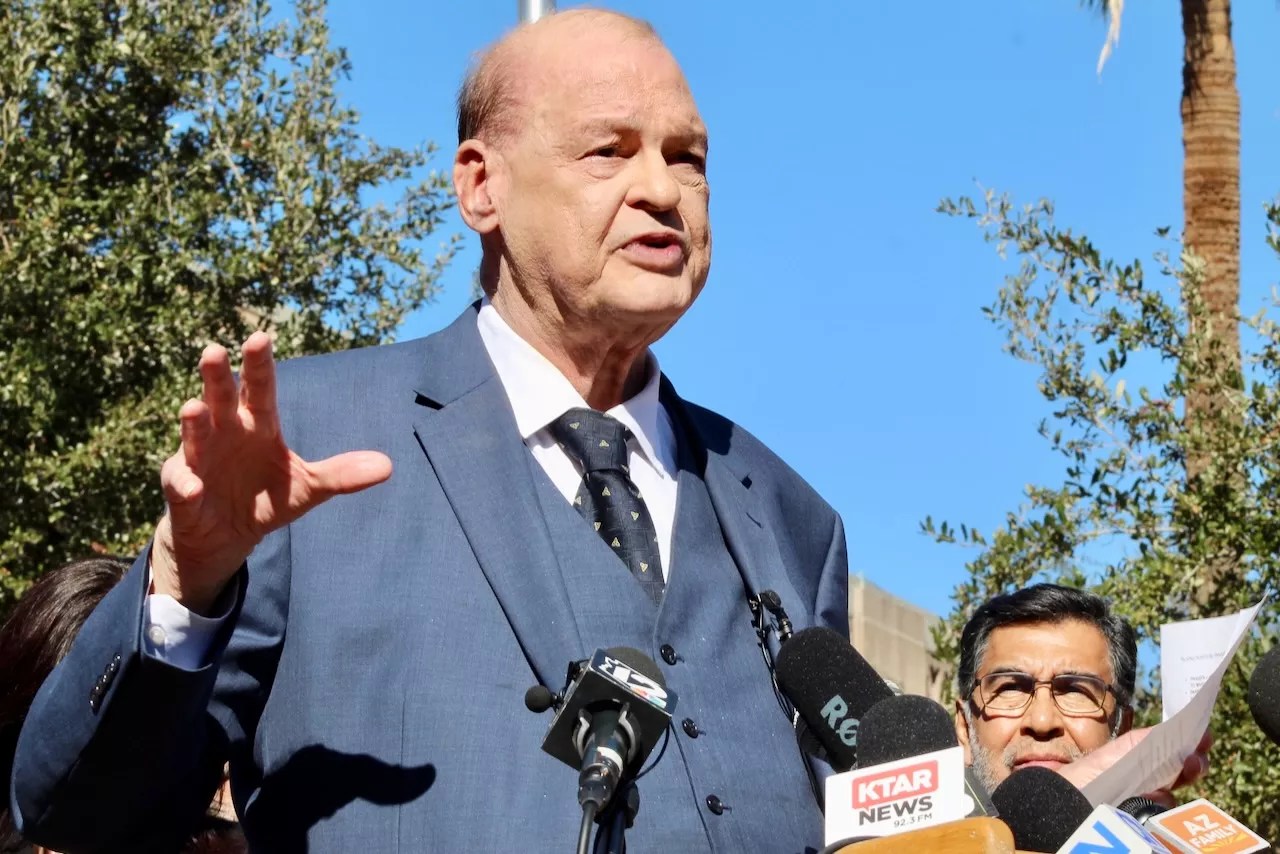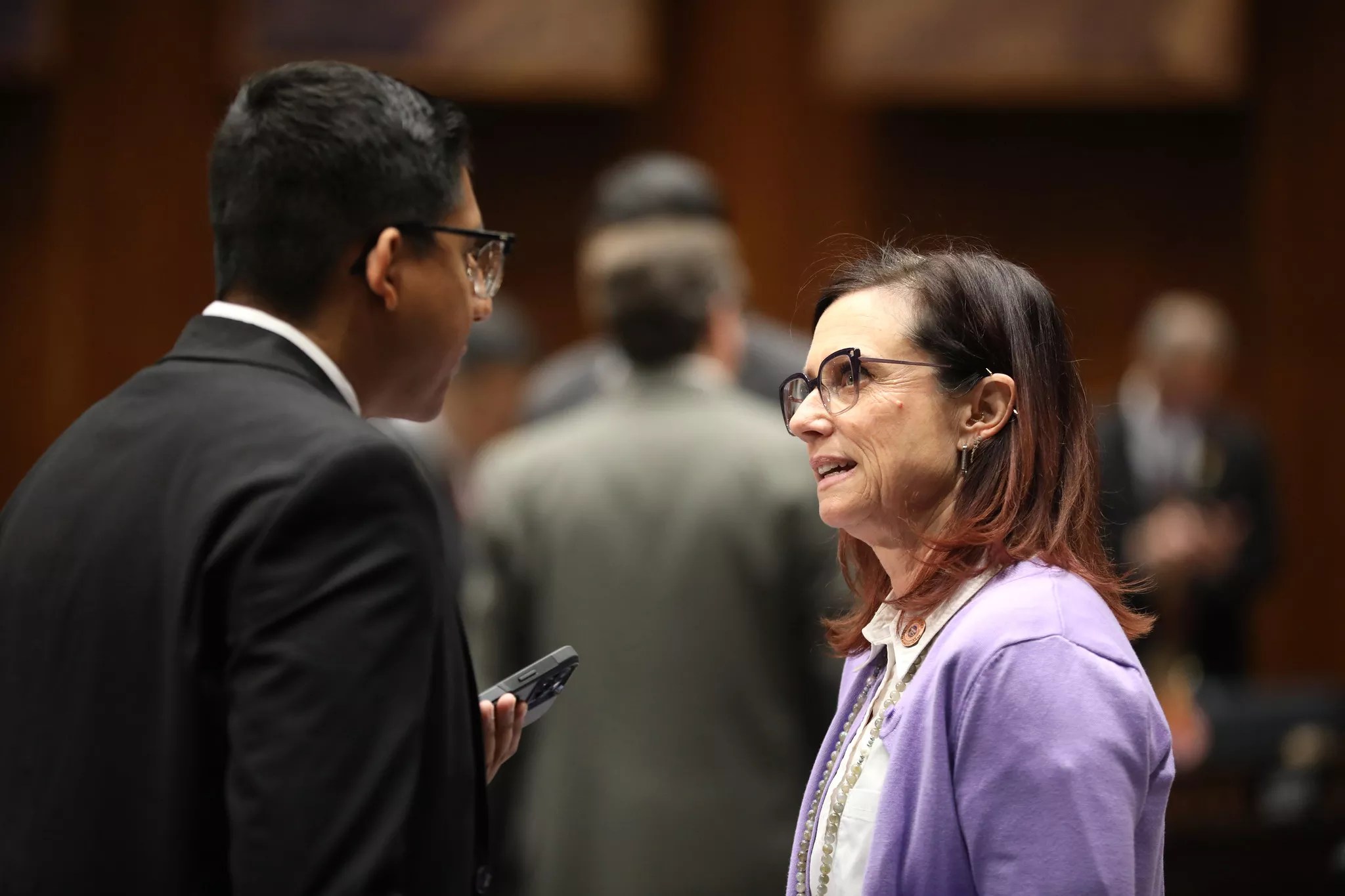
TJ L’Heureux

Audio By Carbonatix
Donald Trump is gearing up to send immigration agents into schools to arrest undocumented immigrants. Tom Horne, Arizona’s top education official and a fellow Republican, thinks that’s a bad idea.
On Monday, Trump’s acting Department of Homeland Security head issued a memo reversing the Biden-era policy of keeping U.S. Immigration and Customs Enforcement agents away from schools, churches and other “sensitive locations.” In a statement about the change, an unnamed DHS spokesperson boasted that “criminals will no longer be able to hide in America’s schools and churches to avoid arrest.”
Much less than the idea of ICE agents ferreting out a murderous gang of fifth-graders, the memo raised the specter of federal agents entering schools and plucking out innocent minors the Trump administration wants to deport.
After giving his State of Education address to the Arizona House Education Committee on Tuesday, Horne told Phoenix New Times that he doesn’t support ICE operating on Arizona school campuses.
“If they do that, less kids will come to school,” said Horne, the state’s superintendent of public instruction.
Horne is hardly a resistance lib. He agrees with many of Trump’s policy aims – including a rollback of transgender rights and the abolition of the U.S. Department of Education – but there appears to be at least a sliver of daylight between them on immigration.
Horne said “it’s not (a child’s) fault their parents came here illegally” and that he worries that a fear of ICE will prevent kids from getting an education. He referenced the 1982 Supreme Court decision in Plyler v. Doe, which established that a state cannot deny public education to undocumented children.

Democratic Rep. Nancy Gutierrez said she was “cautiously optimistic” about Superintendent Tom Horne’s views on ICE raids at Arizona schools.
Gage Skidmore/Flickr/CC BY-SA 2.0
‘Cautiously optimistic’
Rep. Nancy Gutierrez, a Tucson Democrat on the Education Committee, virtually watched Horne’s State of Education speech. Horne harped on many of the culture war issues that have put him at odds with Democrats and educators. But Horne’s comments about ICE – which she learned about when contacted by New Times – left her “cautiously optimistic.”
A high school teacher at Tucson Unified School District, she has already seen attendance decline as many students didn’t return after winter break for fear of being separated from their families.
“There is a real fear of that,” Gutierrez said.
Fellow Democrat and Education Committee member Rep. Stephanie Simacek also struck a measured tone, though she perhaps wasn’t as optimistic about Horne’s stance as Gutierrez.
“I don’t agree with Superintendent Horne on much, but I agree with him on this,” Simacek said in a statement to New Times. “ICE agents should not be making arrests at schools, potentially separating families, sowing fear in the entire school community and disrupting the job educating students.
However, Simacek added, “I am not brimming with confidence that Mr. Horne will actually stand up to Trump to protect Arizona students and schools, but it was encouraging that he spoke up.”

ICE agents.
Immigration and Customs Enforcement
ICE-proofing
Horne may oppose ICE making arrests on school grounds, but he said he has yet to have specific conversations with school districts and educators about what to do if ICE does show up. With school-based immigration enforcement appearing inevitable, many school districts are taking matters into their own hands.
The Cartwright Elementary School District Governing Board, which oversees 21 schools in Maryvale, adopted a policy in December that bars immigration enforcement on school properties “without a valid warrant or legal order.” The district also does not ask about or document the immigration status of students or their families.
The Littleton Elementary School District in Avondale and Tolleson has been working to create similar guidelines, according to school board member Markus Ceniceros. The district will provide information about their rights to people in the surrounding community. It has told school staff that ICE agents must provide a warrant before entering the premises.
School districts nationwide are taking similar steps. San Francisco school districts are hosting legal information sessions for parents, according to the New York Times. In New York City, school districts have told staff to immediately call the school’s district lawyer if ICE agents show up. Schools in Los Angeles have sent information cards home to parents outlining their rights and have held training sessions for staff.
“School districts aren’t waiting to see if this happens,” Gutierrez said. “They are proactively coming up with policy to protect their students and teachers.”